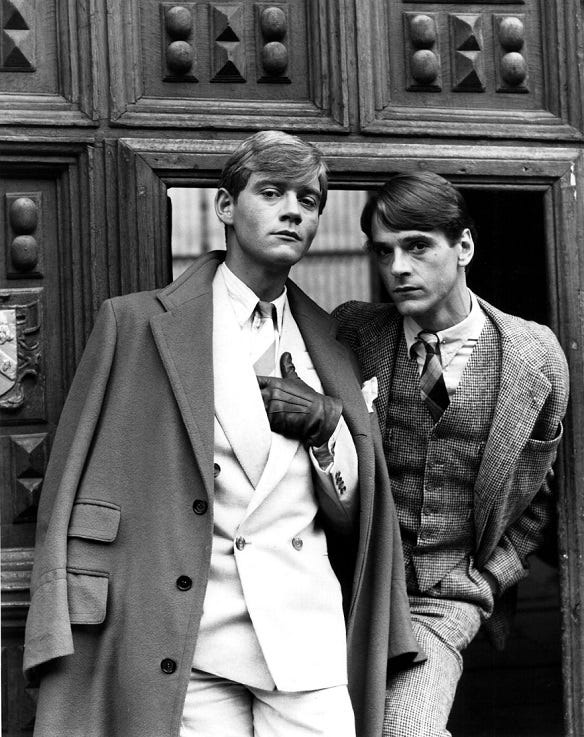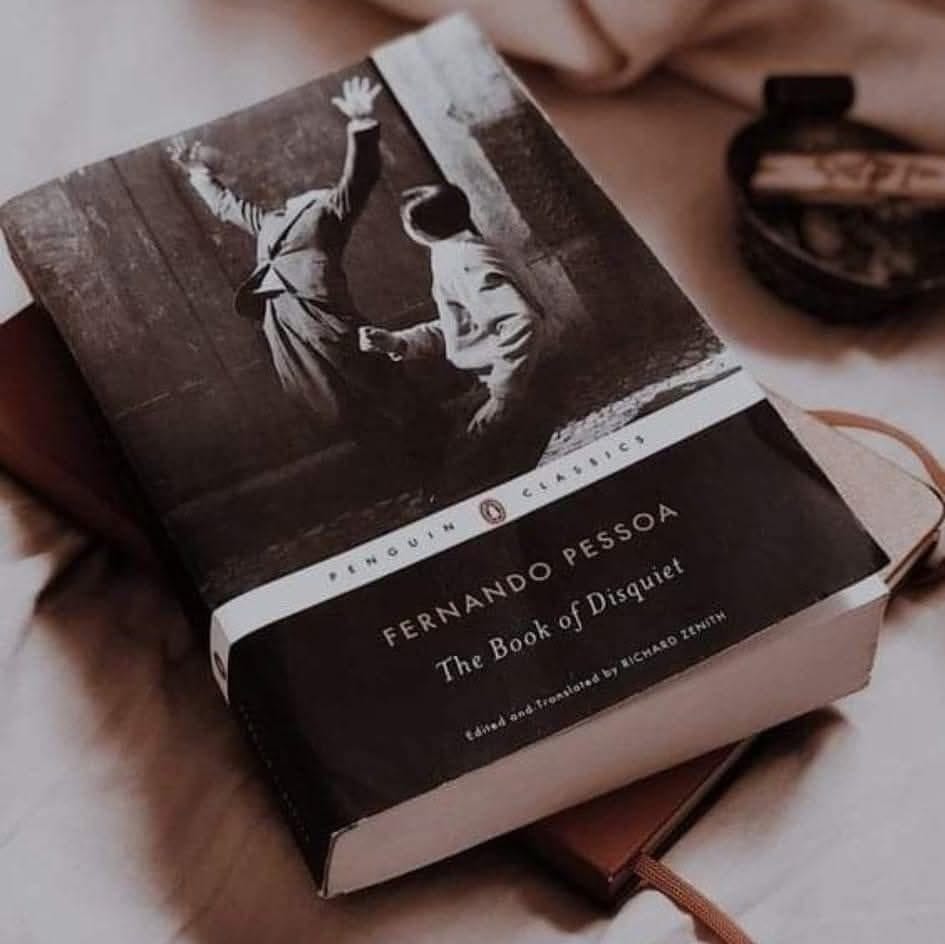Was it once cool to love literature?
A brilliant essay you won't want to miss
If you love literature, if you grew up regarding it as a pinnacle of human expression and even existence, then HERE IS SUCH A GREAT ESSAY, by James Marriott, that you should really read in its entirety. It’s called “English Literature’s Last Stand,” and it’s a review of a book on the subject by Stefan Collini.
Here are a few bits from the essay, to give you a taste.
*
Facts vs. Mysteries: I especially resonated with the idea of there being a dichotomy between studying “mere facts” vs. “the glamorous mysteries of the human heart” - even as I recognize that this is probably a false dichotomy - because, to be fair, the “mere facts” of physics lead straight to the mysteries of the universe (if not of the heart itself):
“English literature – so it seemed to me when I was a bookish zealot of 18 – was the prince of the humanities. When I was interviewed at Oxford and asked why I wanted to study English, I informed my interrogators (I still remember the phrase that I had practised beforehand and considered richly impressive) that “literature shows us what it is or might be to be human”. I believed it. In books, I felt with Tennyson that I had sensed the living souls of the dead flashed on mine…I regarded my peers who had chosen to study mere facts at university rather than to be inducted into the glamorous mysteries of the human heart with some pity (an attitude I have still not entirely shaken off).”
And this passage illustrates the grand problem at the heart of the study of English literature — that its greatest value is to get us to see beauty and to exclaim over it. This is one of life’s most worthwhile, but not necessarily scholarly, pursuits:
Students of English do not expect to emerge from their degrees able to speak a foreign language (save perhaps a smattering of Anglo-Saxon) or code or say anything useful about the differences between arthropods and crustaceans. According to the purest conception of the subject, Collini points out, “the ur-exam question should be something like ‘Isn’t this beautiful?’”. Though surely, “the way to get high marks would not simply be to answer, ‘Yes, it is.’”
For those of you who are near my age (which is 57), the following explains why you may have had English teachers whose classes were imbued with moral seriousness: they revered literature as the apogee of the human spirit— and the antidote to the dark forces of mass culture and totalitarianism. My teachers had us reading a lot of short stories of the anti-totalitarian “brave new world” genre, which shaped my word view enormously. I had thought they were just teachers who loved words: but now I realize that they were emissaries from a particular moment in political time.
“English was a bulwark against those twin threats to human intellectual freedom most feared by the establishment intellectuals of the Fifties: the totalitarian ideologies of the Eastern Bloc and the stupefying and ominously expanding empire of mass culture.”
And then this: I’m always trying to convince my sons that once upon a time, it was cool to be a literary young man - that literary lions had unique gravitas in the culture. They never quite believe me. But here is Marriott on this point:
“It is no exaggeration to say…that in the late Forties and early Fifties, for the hippest of the young (even among those who were beginning to be beat) the best thing in the world to be was TS Eliot or Edmund Wilson. Literary criticism was the philosophers’ stone. In the US in the Fifties it was possible to watch a regular TV programme… featuring Lionel Trilling, Jacques Barzun, and WH Auden”. Literature’s prestige has declined precipitously since then.”

I’ve been thinking a LOT about the meaning of the decline of the humanities, and what to do about it, and will probably share with you an essay on this subject…coming soon.
In the meantime, I’m curious to know:
*whether you are or have been a devotee of English literature or similar subjects;
*to what extent the above resonates with you;
*whether you relate to the idea of a dichotomy between “mere facts” and “the mysteries of the human heart”;
*and anything else that struck you!




As a retired English teacher for 33 years, how can I not love this topic??? Literature will always be one of my greatest loves. Below is a piece I wrote over 25 years ago with my students in a writing-workshop assignment on the topic of beauty. The sentiment is still true, and literature will always be beautiful and cool in my book. ❤
For the Love of Words
I am in love with words. Yes, words. This affair started when I was in 2nd grade and wrote my first poem. From then on, I have always loved to write and read. Words have such power over our lives and truly affect us. And I agree with Rudyard Kipling when he says, “Words are, of course, the most powerful drug used by mankind.” Words have the power to change us and are a source of beauty in my life.
A favorite childhood rhyme goes like this, “Sticks and stones may break my bones, but words will never hurt me.” What nonsense! Words can and do hurt. Conversely, they can also heal and inspire. They can build up or break down a relationship. They can start a war or end a romance. They can motivate men to action or to complacency. Words have such power over us that I think as humans we often overlook their influence in our lives. How many times have we been moved by a song, a commercial, a letter, or even a poem? Probably more times than we care to admit. The magic of language is truly a human phenomenon.
In another life, I probably would have been a linguist. I love to savor the language and feel words slide off my tongue. I actually have fun looking up a word’s etymology and find the variety of language patterns used quite fascinating. When you think about it, the fact that we, as humans, came up with an alphabet -- a symbolic code for the spoken word -- is truly mind boggling. And then to think how we use that symbolic code to communicate is also awe inspiring. Without a doubt, I believe man’s greatest invention is the alphabet.
I definitely am an “English” person. I’m one of those people who will remember what you said and how you said it, far more than what you were wearing or what you looked like. In fact, I have this eccentric habit of recopying poems, quotes, or sayings that I like. I must have thousand upon thousands of these “snippets.” Some are haphazardly thrown in folders, neatly written in journals, or well organized in my “quote” file on the computer. What I’m going to do with all of these words, I have no idea. But every now and then I like to read and linger over these sayings, mainly for relaxation and inspiration. I guess one of these days I think they’ll come in handy when I write my “great American novel” -- one of my dreams that began so long ago when I first fell in love with the written world.
Words are beautiful and when used well, they can be gorgeous! Words can move us to dance, sing, or even cry. After all, how many of us have gotten a little choked up from a sappy Hallmark commercial or when the dogs -- Old Dan and Little Ann -- died in Where a Red Fern Grows? And I wonder how many wars were prevented and relationships started because of some kind words spoken. Until we all learn the true power of words, as a species we will continue to resort to “sticks and stones” as a way to solve our conflicts. Yes, words are the most powerful drug ever created and used by man.
One can't argue against the inspirational value of literature: it's one human communicating with myriad others! But to take it a step further than inspiration: what matters to the broader world is action. What value to the world is private inspiration without outward action?
I don't agree with dichotomizing literature and facts: "mere facts", also, can inspire and motivate to action (here, I'm thinking climate change). Yes, it's a worrisome truth about our species that mere facts and data don't readily motivate enough people to grow past their ingrained beliefs and culture-war attitudes--leading to fact-free politics and dogmatic governance. Sonnets inspire people more than data does, but the decline in literature's coolness doesn't bode well for our species, either. But literature does help us, privately, to endure our species' failings, and give us hope.